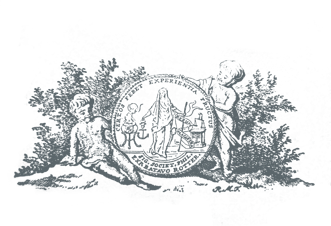Agenda
Introduction

The Batavian Society of Experimental Philosophy (= experimental science) is one of the oldest scientific societies in the Netherlands. Founded in 1769 in Rotterdam by Steven Hoogendijk: a wealthy clockmaker. Probably modeled on the Accademia dei Lincei (1603-1651) and the Royal Society (1660-present). While the first century and a half of its existence mainly promoted various forms of technical innovation, in the past century the emphasis shifted to both medicine and technology. The society had its own laboratory and an extensive arsenal of historical scientific instruments, as well as an extensive historical innovation library. Unfortunately, most of these possessions were lost in the bombing of Rotterdam in May 1940.
Batavian Society of Experimental Philosophy under the motto: 'Certos Feret Experientia Fructus'

Main goal from 'Plan and Constitution' of 1771: . . "Partly, and mainly, the improvement and invention of art and tools, which can benefit agriculture, maritime navigation, mechanical arts and factories, for the maintenance and improvement of rivers, dikes, roads and lands, or for the benefit of some other important Branches of the National Economy. On the other hand, it also means the discovery and confirmation by undoubted Experiments, new truths or knowledge in Physics, Chemistry, Natural History, Anatomy, Physics of the Human Body, Practical Medicine and Surgery, the invention of new Medicines and Healing Aids, etc. Finally, the Society aims to further confirm, through new and certain Tests, already known principal Truths in those Sciences."